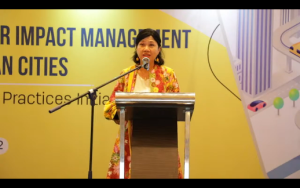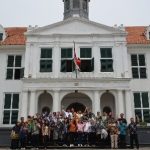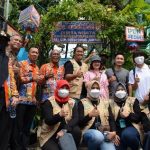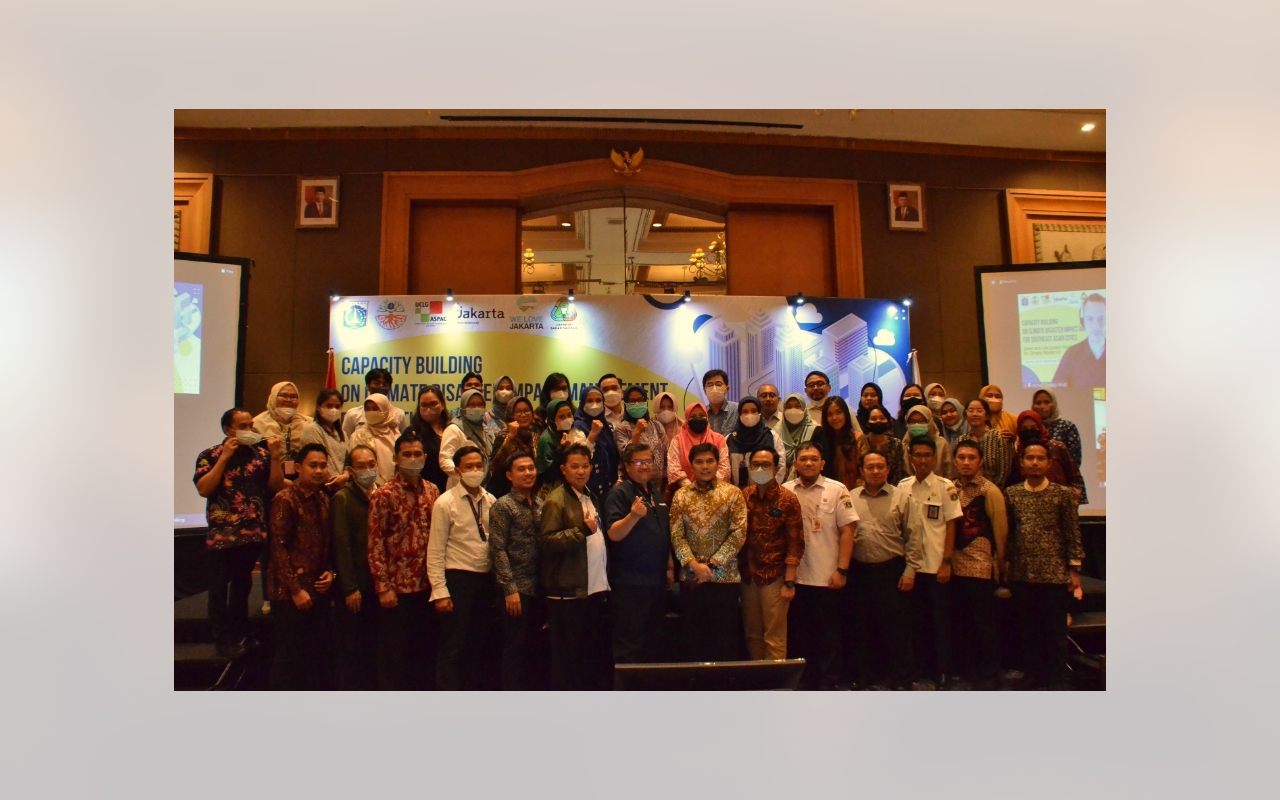September 28-29, 2022 | Jakarta – UCLG ASPAC supported Jakarta Capital City Government in organising a Capacity Building Workshop for Cities in Southeast Asia taking the theme “Green and Low Carbon Initiatives-Practices for Climate Resilience” on September 28-29, 2022. The two-day event witnessed the in-person participation of more than 80 city officials from Southeast-Asian countries, foreign representatives at the embassies in Jakarta, as well as development and media partners at Aryaduta Hotel, Jakarta. More than 40 officials from Southeast Asian countries attended virtually.
The event was opened with a Betawi traditional dance as a warm welcoming message to all participants. It proceeded to opening remarks from institutions that supported the organisation of the event, namely UCLG ASPAC, C40, and the Ministry of Environment and Forestry (MoEF) of the Republic of Indonesia.
 Representing C40 was Alissa Raj (Deputy Regional Director C40 for East, Southeast Asia, and Oceania) who highlighted the importance of a Climate Action Plan to manage greenhouse gas (GHG) emissions. Co-organising the event, UCLG ASPAC Secretary-General Dr. Bernadia Irawati Tjandradewi also spoke as the Secretariat of the Global Covenant of Mayors for Climate and Energy (GCoM) Southeast Asia. She emphasised the role of local governments in supporting low-carbon and climate-resilient development. Mr. Agus Rusly, Secretary of the Directorate General of Climate Change MoEF, also shared the Indonesian Government’s commitment to control climate change.
Representing C40 was Alissa Raj (Deputy Regional Director C40 for East, Southeast Asia, and Oceania) who highlighted the importance of a Climate Action Plan to manage greenhouse gas (GHG) emissions. Co-organising the event, UCLG ASPAC Secretary-General Dr. Bernadia Irawati Tjandradewi also spoke as the Secretariat of the Global Covenant of Mayors for Climate and Energy (GCoM) Southeast Asia. She emphasised the role of local governments in supporting low-carbon and climate-resilient development. Mr. Agus Rusly, Secretary of the Directorate General of Climate Change MoEF, also shared the Indonesian Government’s commitment to control climate change.
On behalf of the Governor of Jakarta (the Co-President of UCLG ASPAC and Vice Chair of C40), the Regional Secretary of Jakarta, Mr. Marullah Matali delivered a keynote speech on “Jakarta Collaboration: Cross-Sectoral Cooperation in Handling Climate Change Impacts in DKI Jakarta.”
Day 1 – Knowledge Exchange and Learning
In the first session, participants learned from a panel discussion from Indonesia and Viet Nam tools to support Nationally-Determined Contribution (NDC) targets. Ms. Tri Widayati (Directorate of Adaptation, MoEF Indonesia) specifically presented materials on the implementation of national policy on climate change adaptation in Indonesia. Representing Viet Nam was Ms. Vu Hoang Thuy Duong (Institute of Strategy, Policy on Natural Resources and Environment, Vietnam) sharing the resilient and de-carbonising pathways in responding to climate risks in Vietnam.
Further, participants also learned from Southeast-Asia cities on green and low-carbon initiatives: Mr. Rozaidi bin Mahat (Head of Sustainability, Hang Tuah Jaya, Malaysia), Ms. Andrea Valentine Villaroman (Head of the Climate Change and Environmental Sustainability Department, Quezon, Philippines), Mr. Rhenan Diwas (City Environment and Parks Officer, Baguio, Philippines), and Mr. Anthon Parura (Head of the Centre for Data Information, Transportation Department, Jakarta, Indonesia).
Participants also learned sharing from developed countries, including Mr. Michael Chadney (Transport Planning and Future Mobility Lead, ARUP) who shared the lesson learned on the mobility strategy from Singapore and the United Kingdom, Mr. Martin Lutz (Head of Sector Air Quality Management, Berlin Senate Department for the Environment, Urban Mobility, Consumer Protection, and Climate Action) presenting materials on “De-carbonising the Energy and Transportation Sectors,” and Mr. Jun Ichihara (Expert and Chief Advisor, Japan International Cooperation Agency) who shared climate policy in Japan.
Day 2 – Field Visit

 One of the workshop agendas was a field visit. Participants were invited to see community involvement in strengthening adaptive capacity to the impacts of climate change and reducing GHG emissions in a visit to a Climate Village (a national programme involving the community to contribute to tackling climate impacts) located at Cempaka Putih. Participants saw urban farming products and collective climate-related initiatives showcased by the local community. Participants also learned how Jakarta Capital City Government recently implemented a Low Emission Zone (LEZ) in Old Town Jakarta by limiting the number of vehicles and creating public spaces.
One of the workshop agendas was a field visit. Participants were invited to see community involvement in strengthening adaptive capacity to the impacts of climate change and reducing GHG emissions in a visit to a Climate Village (a national programme involving the community to contribute to tackling climate impacts) located at Cempaka Putih. Participants saw urban farming products and collective climate-related initiatives showcased by the local community. Participants also learned how Jakarta Capital City Government recently implemented a Low Emission Zone (LEZ) in Old Town Jakarta by limiting the number of vehicles and creating public spaces.
Overall, participants of the workshop were exposed to green and low-carbon initiatives and practices in Southeast Asia. They were able to identify problems, challenges, and solutions to be implemented in respective cities. This event also created opportunities for the participants to collaborate more in the future.











